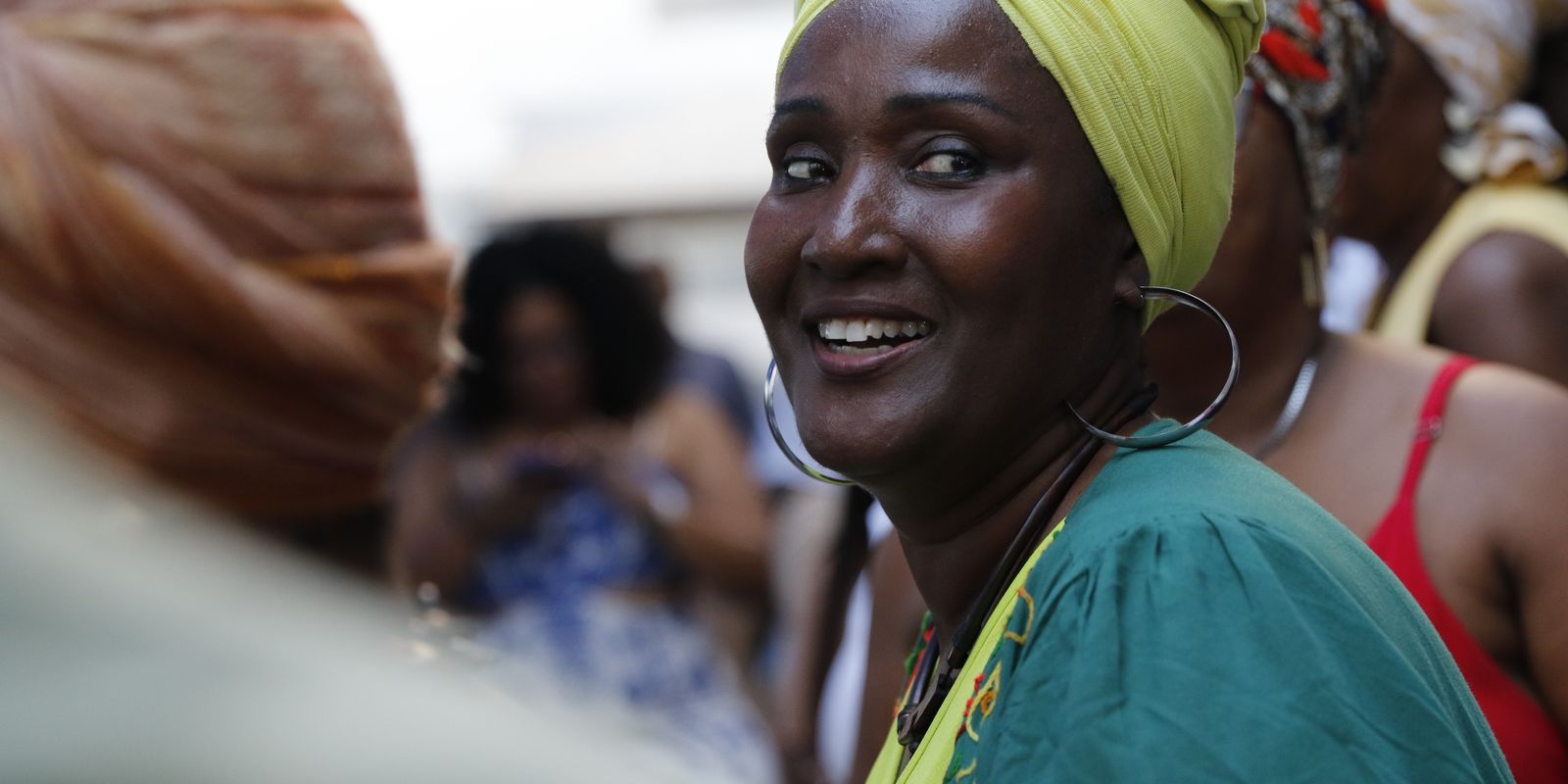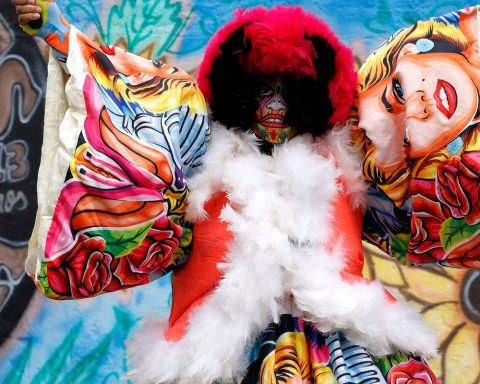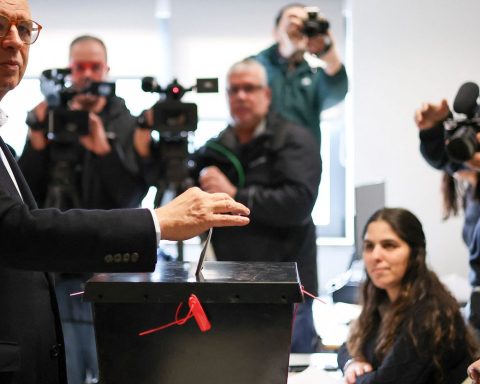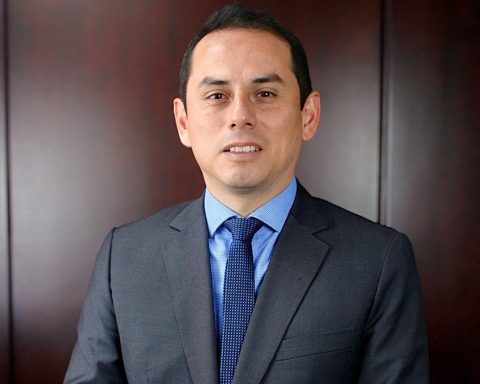In children’s notebooks and books, the majority of Brazilian heroes, writers, revolutionary stories of foreigners and discoveries are white characters. “This is very bad for us. Our children and young people in the community are black people who need to recognize our stories and heroes”, says farmer Rose Meire Silva, 46 years old, leader of the Rio dos Macacos quilombola community, in Simões Filho (BA). 
Even though she was illiterate, Rose began to find out about Law 10,639 which, exactly 22 years ago, made the teaching of Afro-Brazilian culture mandatory in Brazilian schools. Therefore, he decided to travel to schools “neighboring” the community to demand that the curriculum be inclusive. Currently, children walk at least 14 kilometers to get to schools. “They go through all this and, sometimes, they are disappointed with what they hear in the classroom. There are teachers who don’t even touch on black issues, much less quilombolas. They say to ‘leave it alone’”, he laments.
Check out what the law says here.
Search for rights
Researcher in education and human rights, Brasilia professor Gina Vieira, who defends anti-racist teaching, reinforces that demanding rights, as is the case with the quilombola leadership, is not related to charity or concessions, but to the search for rights. “Teachers must be guided by the promotion of what is in the Constitution, such as diversity and celebration of Brazilian identity”. For her, if a school is not applying the law, it needs to be held accountable.
Professor Luiza Mandela, also a researcher and creator of education courses for ethnic-racial diversity in Rio de Janeiro, considers that the law has become a support for those who work in the classroom with these themes of Afro-Brazilian culture. “This is still an advance”, he states.
Reasons to celebrate
The researcher says that there are reasons to celebrate the 22nd anniversary of the law, as it has enabled positive initiatives in educational structures and the interest of teachers in searching for information on the subject. “We have had advances in black intellectual productions focused on ethnic-racial themes”, he says.
According to Gina Vieira, it is important to celebrate more than two decades of legislation, the result of the historic struggle of the black movement that must be seen from different perspectives. One of them is ethics. “It is wrong to deny students the possibility of an integral and diverse human formation”. For her, the curriculum, teaching material and organization of pedagogical work have always been guided in the country by a white perspective that made all other cultures subordinate.
She also understands that, for the first time, in a strong way at school, there is a celebration of black aesthetics, including that of black bodies and representations of curly hair. “So I believe there is a lot to celebrate.”
Improvement
However, the researchers argue that legislation and enforcement need to be improved. “Legislation can also be improved in relation to monitoring compliance with this law”, says Luiza Mandela. Gina Vieira adds that the application of a law involves structural changes and public policies, including changes to the curriculum, teaching materials and the way teachers are trained in postgraduate programs.
Teachers see, on the one hand, that there is a lack of mandatory subjects for undergraduate courses to delve deeper into these topics. On the other hand, there may still be resistance from public and private education professionals. “To improve teacher training, it is really necessary to have a law that determines the mandatory nature of these topics in all courses”, says Luiz Mandela.
Repertoire
The topic, in fact, has been asked of those entering higher education in the entrance exams, including in the latest edition of the National High School Exam – “Challenges for valuing African heritage in Brazil”. “This led everyone to talk about the subject We even wonder how students from schools that are not applying the law wrote. Did they have the repertoire to write it?” asked Gina Vieira.
She understands that initiatives like this one from Enem are pertinent and relevant. But, from another perspective, according to Gina, it should not be debated just so that students are able to write an essay or answer a question, but so that, in fact, another view of the world is promoted.
Pernambuco sociology professor Claudio Valente, who coordinates an educational project in the Ibura community, considers that the school has a fundamental role in the socialization of the individual. “There is no way to talk about Brazil and not touch on Afro-Brazilian culture issues. Therefore, this law is very important. But there needs to be supervision over its application in CVs.”
Research released in 2023 by Instituto Alana and Geledés Instituto da Mulher Negra identified that seven out of ten municipal education departments did not take any action or developed few actions to implement the teaching of Afro-Brazilian history and culture in schools.
National policy
In a note to Brazil Agencythe Ministry of Education argued that, in these 22 years of Law 10,639, there have been significant advances. He cited, among them, the launch, in May last year, of the National Policy on Equity, Education for Ethnic-Racial Relations and Quilombola School Education (PNEERQ). “Another important milestone was the institution of the national holiday on November 20th, in honor of Black Consciousness and Zumbi dos Palmares”.
The ministry’s communications department recalled that, from a pedagogical point of view, it provided the possibility of reorienting didactic, literary and instructional materials towards a perspective of overcoming racial discrimination and valuing learning.
Another consideration made by the government is that, for the first time in 21 years, the MEC carried out research that presents data on the implementation of education for ethnic-racial relations and quilombola school education. “This monitoring included the participation of all state Education departments and achieved 97.8% adherence, with the questionnaire administered between March and July 2024.”
The initiative is part of national policy and intends, based on the results, to implement actions and programs aimed at overcoming ethnic-racial inequalities and racism in teaching environments. “In addition, the policy aims to train professionals for management and teaching in education for ethnic-racial relations and quilombola school education, consolidating a commitment to equity and diversity in the educational sphere”.

















